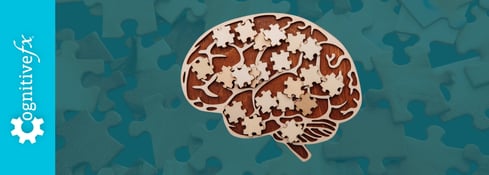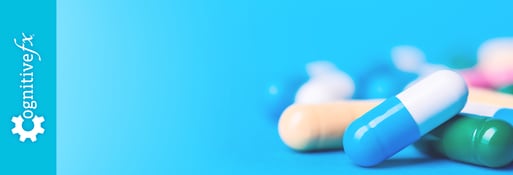Post-concussion Memory Loss: Recovery Stories & FAQs
Memory loss is a common concussion symptom. You can struggle with long-term or short-term memory formation after a concussion, but short-term memory problems are more common. Some common issues include…
- Forgetting the names of acquaintances (people you know, but not well)
- Misplacing everyday items like car keys, water bottles, glasses, and phones
- Forgetting what someone just said a few moments ago
- Misremembering or completely forgetting conversations
- Missing appointments or other engagements.
It’s normal to experience issues with memory for a few weeks after a concussion, but if your symptoms continue months afterward, that’s a sign of post-concussion syndrome (PCS). Post-concussion syndrome is when concussion symptoms fail to resolve without treatment. Fortunately, there are effective therapies to help you recover from memory loss and other common symptoms of a mild traumatic brain injury (mTBI).
In this post, we’ll answer some commonly asked questions, share stories from real patients who overcame their memory problems, and explain how the treatment program at Cognitive FX works. Here’s a list of topics in case you’d like to skip ahead:
- Can a concussion cause memory loss? Is it permanent?
- Can a concussion cause memory loss years later?
- Do more concussions mean a higher risk of memory loss?
- Is there medication for short-term memory loss from a head injury?
- Why do concussions cause memory loss?
- Recovery stories from six patients who struggled with memory loss
- More info about post-concussion syndrome treatment at Cognitive FX
If you've experienced one or more concussions and your symptoms (including vision problems) persist, you're not alone — and you're not imagining it. Help is available. Peer-reviewed research shows that 77% of patients treated at Cognitive FX experienced significant improvement in their post-concussion symptoms. Cognitive FX is the only post-concussion treatment clinic with third-party validated outcomes. To see if you are eligible for treatment, schedule a consultation.
Common Questions About Concussions and Memory Loss
In this section, we’ll answer your most common questions about concussions and memory loss.
1. Can a Concussion Cause Memory Loss? Is It Permanent?
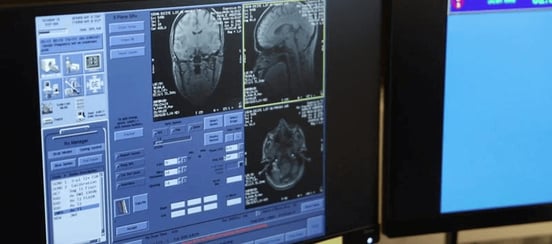
Yes, concussions can cause memory loss. Head injuries can cause loss of memory surrounding the event itself (called post-traumatic amnesia) or recurring memory loss after the injury. It doesn’t matter whether you sustained your concussion playing contact sports, in a motor vehicle accident, tripping down the stairs, or any other scenario you can imagine — any head trauma puts you at risk for brain damage that can cause memory loss.
For most concussion patients, memory loss involves difficulty remembering what to buy at the grocery store, what someone just told them, or the information for an upcoming test. They often turn to coping strategies like calendar reminders and writing down important information. While everyone needs to use calendars and take notes on certain occasions, concussion patients are likely to do it more often (and if they don’t, they forget what they were trying to remember).
If you lost your memory of a traumatic event, it may or may not come back; that memory loss could be permanent. If you have recurring memory problems from a concussion, those can improve or go away completely with a good concussion rehabilitation program.
Severe memory loss (completely forgetting an event or the people you spoke with, even though you were present) is rare for concussion, but it can happen. It’s more common to have that kind of memory loss with a severe TBI.
That said, we did treat one patient whose memory reset every two hours after her concussion. Doctors told her it was a mild concussion that would get better after a few days. Instead, she spent six months that she can’t remember. Riley came to Cognitive FX for treatment and was able to start making memories again after two weeks in our program. While the six months when she was unable to form new memories will not come back, her recurring memory loss — at least in such a severe form — was not permanent.
Note: Did you know that a CT scan won’t show a concussion? Regular structural MRIs don’t show concussions either.
2. Can a Concussion Cause Memory Loss Years Later?

Yes, a concussion can cause long-term memory loss and recurring short-term memory loss, even weeks, months, or years after the head trauma. Usually, this is known as a symptom of post-concussion syndrome. Up to 30% of all concussion patients develop persistent symptoms.
While some patients make the connection between their symptoms and their head injury right away, others may take years to realize that the concussion they sustained is responsible for their health problems. Some people receive treatment for concussion symptoms, but it doesn’t work well enough and they continue to have problems. Only with the right treatment protocol do these memory problems truly resolve.
3. Do More Concussions Mean a Higher Risk of Memory Loss?
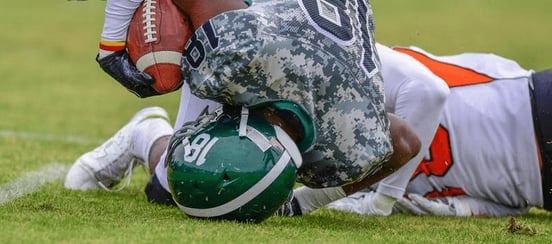
If you’ve had multiple concussions, you have a higher chance of seeing a persistent impact on brain function. Our post on the topic explains what happens to your brain cells when you have multiple concussions and how to get treatment so you can feel better and improve your memory.
Contrary to popular belief, loss of consciousness at the time of the injury does not make you more or less likely to have lasting memory loss or other concussion symptoms. In reality, mental confusion (disorientation) could be a sign that you’ll develop lasting symptoms.
Further reading: Concussions from football
4. Is There Medication for Short-Term Memory Loss?

The only medication on the market for short-term memory loss is designed to treat Alzheimer’s patients. As far as we know, there is no memory loss medication for patients who have sustained a TBI. Sometimes, memory loss is a side effect of the medication patients take to relieve other symptoms of concussion.
For example, some patients take Topamax to relieve headaches after a concussion. We’ve seen a number of patients with increased memory problems as a result of taking the drug.
If you’re currently taking medication for other symptoms of a concussion, it’s worth consulting with your health care provider to determine what long-term effects they might cause and whether you have alternative options. We’ve written at length in another post on medication for concussions and post-concussion syndrome.
5. Why Do Concussions Cause Memory Loss?
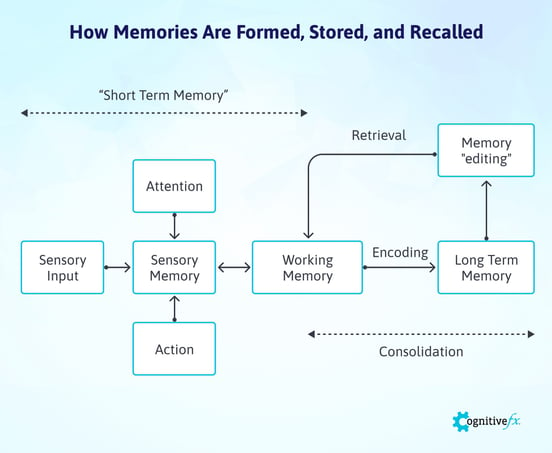
To understand how a concussion can disrupt memory function, it helps to understand how memory works in a healthy individual. To make a new memory, your brain first encodes the experience that you’ve paid sufficient attention to (it could be a conversation, a sight, a feeling, etc.).
Next, the brain consolidates memories from the day while you sleep, then stores them piece by piece next to memories it believes are related. A single memory (such as your birthday party) might be fragmented into the way the cake smelled, what your aunt said to you, what the wrapping paper looked like, etc. And when it’s time to recall that memory, your brain has to bring all those pieces back together again. It’s like assembling a jigsaw puzzle every time you remember something, except that when you recall a memory, your brain actually edits that memory. As a result, that memory can change over time.
Forming and recalling a memory requires many parts of the brain to work in harmony. You have to be capable of enough attention to form the memory in the first place. Then, the parts of the brain that encode, store, and retrieve memories also need to be in working order.
When you experience a concussion (or any TBI), your immune system causes inflammation (not to be confused with severe brain swelling) near the site(s) of injury. The brain cells affected experience a temporary breakdown of tiny structures in and around them.
As a consequence, those cells don’t get the right amount of oxygen and at the right time to power all the work those brain regions normally do. When you try to do something that those cells govern — like encoding a new memory or paying attention to a conversation — they aren’t able to complete the task as efficiently. Sometimes, other neural pathways can pick up the task, but they aren’t able to accomplish it as efficiently.
This process of brain regions being unable to call for or receive the right amount of blood from the vessels that surround them is called neurovascular coupling (NVC) dysfunction. In patients with lasting concussion symptoms, NVC dysfunction results in hypoactive brain regions that can’t do their fair share of the work. Because of that, patients experience a wide range of symptoms depending on which regions of their brain are struggling to function properly.
While it’s too much to tackle in this post, other post-concussion complications can impact memory, too. PCS patients often experience autonomic nervous system dysfunction, poor sleep, and even breathing changes that can cause cognitive impairment.
Further reading:
- Autonomic dysfunction following concussion
- Sleep problems with post-concussion syndrome
- How concussions can negatively change your breathing patterns
At our clinic, we treat all of these post-concussion conditions and more. You can learn more about what treatment involves at the end of this post.
Note: Our patients show a 60% symptom improvement after just one week of treatment at Cognitive FX. And using advanced brain scan techniques, we can see how our patients' brains respond to treatment. To learn more about how we can help you in your recovery, sign up for a consultation.
Concussion Memory Loss Recovery Stories
In this section, you’ll find videos and summaries that describe the recovery journey of six patients who suffered from memory loss (among other symptoms). As you’ll see, they all had different reasons for sustaining a head injury, but they were all able to make significant progress through their hard work and dedication during treatment.
Caitlyn’s Story: Back to College After Seven Concussions
After sustaining seven concussions, Caitlyn suffered a host of lingering symptoms that just wouldn’t go away. “Life before treatment was unbearable,” she recalled. She had memory problems, light sensitivity, dizziness, headaches, and more.
Simple tasks like going to the grocery store by herself were impossible, and she was forced to drop out of college halfway through her first semester. “I couldn’t retain any information,” she said.
The inability to go to school was the turning point for her. Committed to understanding her condition, Caitlyn sought medical help. She learned that her symptoms came from post-concussion syndrome and that they were treatable. When she found Cognitive FX, she was skeptical as to whether the doctors and therapists could really help her, but was willing to try anything if it meant getting her life back.
“The treatment you go through is exhausting, but compared to the last five years, it was nothing I couldn’t handle,” she said. “It was amazing to see not only myself changing, but the people alongside me who were in the treatment as well. I felt really accomplished after I would finish my cognitive therapy without getting a really bad headache, or when I was able to run on a treadmill for 30 min without getting dizzy.”
After one week of rigorous physical therapy and cognitive exercises, her brain scans were back to the normal range, and her symptoms were under control. She found that college classes (and running errands alone!) were entirely within her grasp again. At the time, she expressed eagerness to return to school and study nursing.
“Just being able to go to the mountains to see my brother — I hadn’t been able to do that in a while because the altitude change would make me so sick. I’m really excited just to be able to live life like normal,” she said.
Ryan’s Story: Hope After Long-Term and Short-Term Memory Loss
After sustaining a concussion in a car accident, Ryan’s life was turned upside down. He suffered from short-term memory problems, long-term memory problems, difficulty focusing, sleep disturbances, anxiety, and general cognitive difficulties. He and his mother looked for answers, but “we just never found anything that could help him,” his mother explained. “We were just praying and praying for something that would help him to go forward in life, so he could have all the things we wanted for him in a more normal life.”
So when Ryan’s aunt told them about Cognitive FX, they decided to pursue treatment at the clinic. Ryan was willing to put in whatever work was necessary to make a full recovery from the car crash.
“Even after the first day, my energy level was already starting to go up. I was able to sleep better at night, and as the week went on, my energy — I have a ton of energy now. My focus is a lot better. I can multitask again, my long-term memory is pretty good now too, and short-term is not a problem. I can remember things people tell me, things I see,” he said.
“The people you work with — they're so friendly,” he said. “It's the only place I've gone to where everyone really cares and asks you every day how you're doing. It's like a family environment, which helps you become more comfortable, which is important when you're trying to do therapy.”
His mother was grateful for the follow-up instructions: physical and cognitive exercises to do at home, nutrition advice, and follow-up calls. “Those things show me that it's a real program that is about the whole health and wellness of my child and his brain and his future,” she said.
Aimee’s Story: Finding Healing After a Car Accident
Aimee was in a car accident in 2001. Her severe traumatic brain injury caused personality changes, constant headaches (“I took Maxalt and Imitrex like they were candy,” she recalled), memory problems, exhaustion (even narcolepsy), dizziness with workouts, light and sound sensitivity, and more. She relied on her phone for lists, calendar reminders, and anything else she could use to stay on top of life’s demands.
Seventeen years later, she read about Cognitive FX and “was unbelieving,” she admitted. “As soon as I learned about it, I got in for a consultation. I took a week to research and talk to people, weigh the pros and cons. I figured, it’s my brain. If this can help, I’m going to try it.”
After that, she “jumped all in” and fully committed to doing whatever it took to get better. In October 2017, she worked through occupational therapy and physical therapy. “It’s been two months now, and I can still remember all the pictures they laid out for me to help me remember things, even though they were pretty insignificant to me.”
One of the exercises that stood out to her was using a Dynavision board, which helps patients with vision-related symptoms. “I did a pretty cool thing called Dynavision where I’d balance on a ball or stand on one foot and touch lights as they light up. It’s just challenging, but in a fun and enjoyable way.”
“When I left on Friday, I was so excited that I couldn’t contain myself; I just wanted to talk!” she said. She felt so much more like herself and started using words she hadn’t used in years. Everything looked brighter and cleaner than it did before. It took some time to adjust, but she’s been doing recommended exercises after treatment and can multitask better than she could before her injury.
She still gets headaches when she “doesn’t take care of herself,” but they’re way less frequent and less severe. She’s been able to significantly decrease her narcolepsy medication and hopes to get off it completely one day — something she never thought she’d say. All of her symptoms have improved. “It’s just a better version of me,” she reflected.
Want to know if you’re eligible to receive the treatment Aimee went through? Sign up for a consultation with our team.
David’s Story: Recovery After Pro MMA Fighting
During his career as a professional mixed martial arts fighter, David experienced severe post-concussion syndrome from multiple concussions. He had some “tough fights” and got knocked out a few times. Beginning in 2015, his symptoms increased over time, and he suffered from severe depression, anxiety, vertigo, sensitivity to light and noise, forgetfulness, and more. He had to isolate himself and felt “super, super dizzy” after trying to exercise and would have to lie down. He could never seem to find his keys or his car.
By the time he found Cognitive FX, some of his symptoms were less severe than they used to be, and he wondered if he really still needed treatment. “I almost didn’t come,” he admitted, “but I decided to come anyway.”
“The week of treatment was a lot of hard work. Many hours of the things they do here — brain games, all the different physical therapies — at times it was trying, and actually, by Wed or Thur, I went from having very few physical symptoms to where I felt almost fully post-concussed again. I was dizzy, I was agitated, resentful,” he said.
He was so frustrated because it seemed, to him, like he was getting worse, not better. Nevertheless, he worked hard at the exercises he was asked to do. But by Thursday night, he felt like his brain started turning on again. “On Friday we did the [fNCI] scan, and it came back with some pretty awesome results. The blood is flowing correctly to the parts of my brain that it wasn’t before.”
“I’m really pleased with the experience,” he said. “It seemed well worth the time and the money and the effort to come out here. I’m excited to continue to improve my brain. The results are real.”
Kelly’s Story: Overcoming Severe Short-Term Memory Loss
Kelly was in a motor vehicle accident but didn’t realize he had severe memory problems until his fiancée clued him in. As it turned out, he was having the same conversations again and again. “It turns out I was just missing so much of my life,” he said, “so I came here.”
At first, he thought the program sounded ridiculous. One week to fix a problem that’s been happening over a year? “Or so I’m told,” he laughed.
“Well,” he continued, “I got the results. I can think again. And I can remember again! I won’t have any excuses for my fiancée if I forget things at the store, or birthdays, or anniversaries, or anything else.”
Overall, he was blown away by his recovery. “My experience here has been amazing,” he said. “You’re pushed mentally, but you don’t feel like it, because it just brings you alive. I feel so much better.”
Lynette’s Story: Recovering After Being Rear-Ended on the Freeway
Lynette was injured in a car crash when another driver rear-ended her car at highway speeds. “My year has been one heck of a roller-coaster ride,” she shared. She endured a year of pain, memory loss, cognitive difficulties, fatigue, and other symptoms.
It made her job — insurance sales — extremely difficult to perform. “I was losing a lot of big contracts because I was messing up on the formulas and the addition, I was inverting numbers, that sort of thing,” she said.
“Emotionally, it really caused a lot of pain and anguish. I’m to the point where I actually lost a marriage over the accident,” she added.
Before fully committing to treatment, Lynette decided to come in for an fNCI scan to confirm what she was being told about her brain. “At that point, I became incredibly emotional, because for the first time in my life, I realized that I had some hope. I thought I was going to have to live the rest of my life with a foggy brain and a massive headache all the time.”
She felt the fog lift three days into treatment and finally feels like herself again. “I feel like I’ve had this rebirth of ‘me’ again,” she said. “The technology that they’re using to reactivate your brain is just miraculous.” She’s thrilled with the outcome and loved meeting both our healthcare professionals and other patients.
Post-concussion Treatment at Cognitive FX
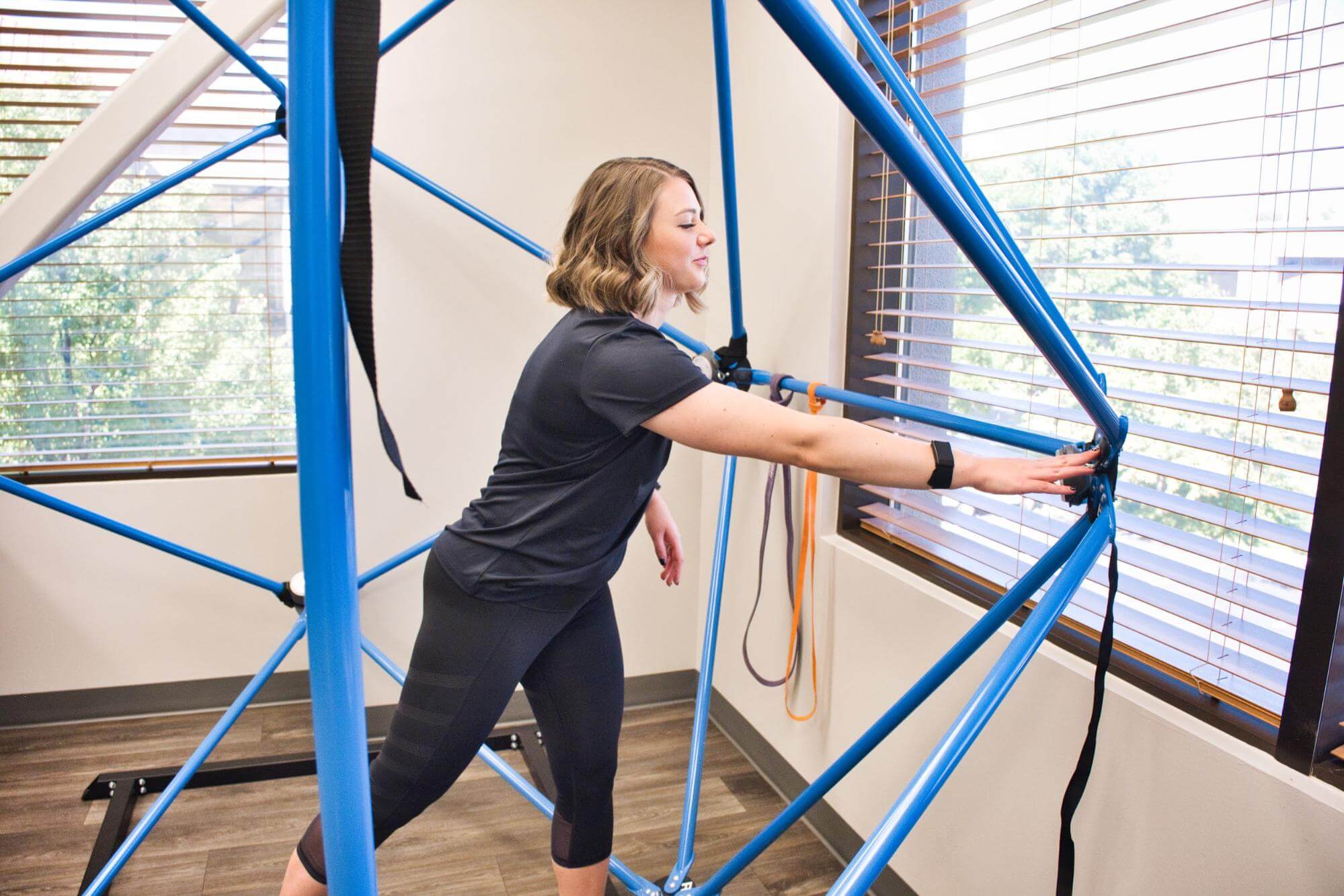
At Cognitive FX, we offer treatment protocols to assist with post-concussion brain function issues (neurovascular coupling dysfunction), autonomic dysfunction, vision issues, poor sleep, and vestibular problems.
All patients undergo a functional Neurocognitive Imaging (fNCI) scan. fNCI is a type of functional MRI that looks at blood flow dynamics throughout 56 regions of the brain while the patient performs a series of standardized cognitive tasks. We also investigate communication between those brain regions.
We can then infer the health of brain regions involved in tasks such as attention, mental imagery, word retrieval, and reading comprehension. Here is an example of the report summary for a healthy patient:
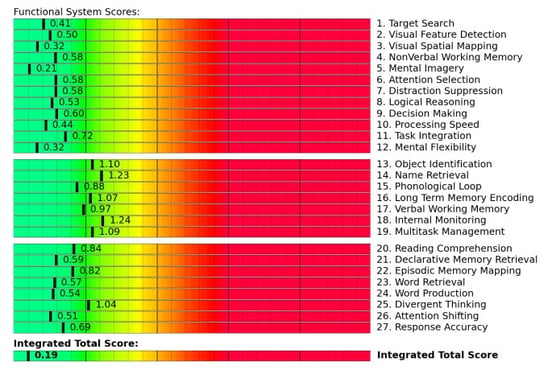 Scores in the yellow or red zones indicate areas we should focus on during treatment. We consider how well your brain regions are communicating with each other.
Scores in the yellow or red zones indicate areas we should focus on during treatment. We consider how well your brain regions are communicating with each other. 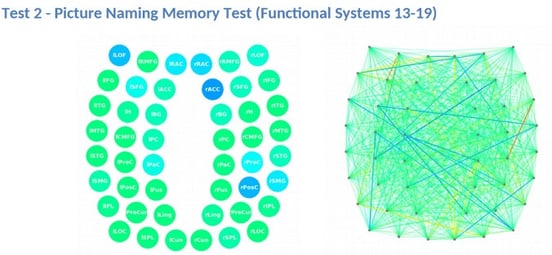
For example, the scan above shows a hypoactive right anterior cingulate cortex (rACC, in blue). The rACC plays an important role in sustained attention and is involved in other types of attention as well. Armed with this knowledge, this patient’s therapist can adjust treatment to include more therapy for sustained attention.
But the fNCI is not the only test we perform. Our clinicians look for indicators of vision problems and vestibular dysfunction (such as loss of balance in testing, eyes that don’t converge or diverge as expected, etc.). The results are also used to adjust your therapy to your needs.
The treatment program is a unique combination of physical and cognitive therapies. During treatment, you’ll cycle repeatedly through three stages: Prepare, Activate, and Recover. These stages prepare the brain for work, immerse the brain and body in carefully selected therapies, and allow the brain to rest before repeating the process.
Prepare
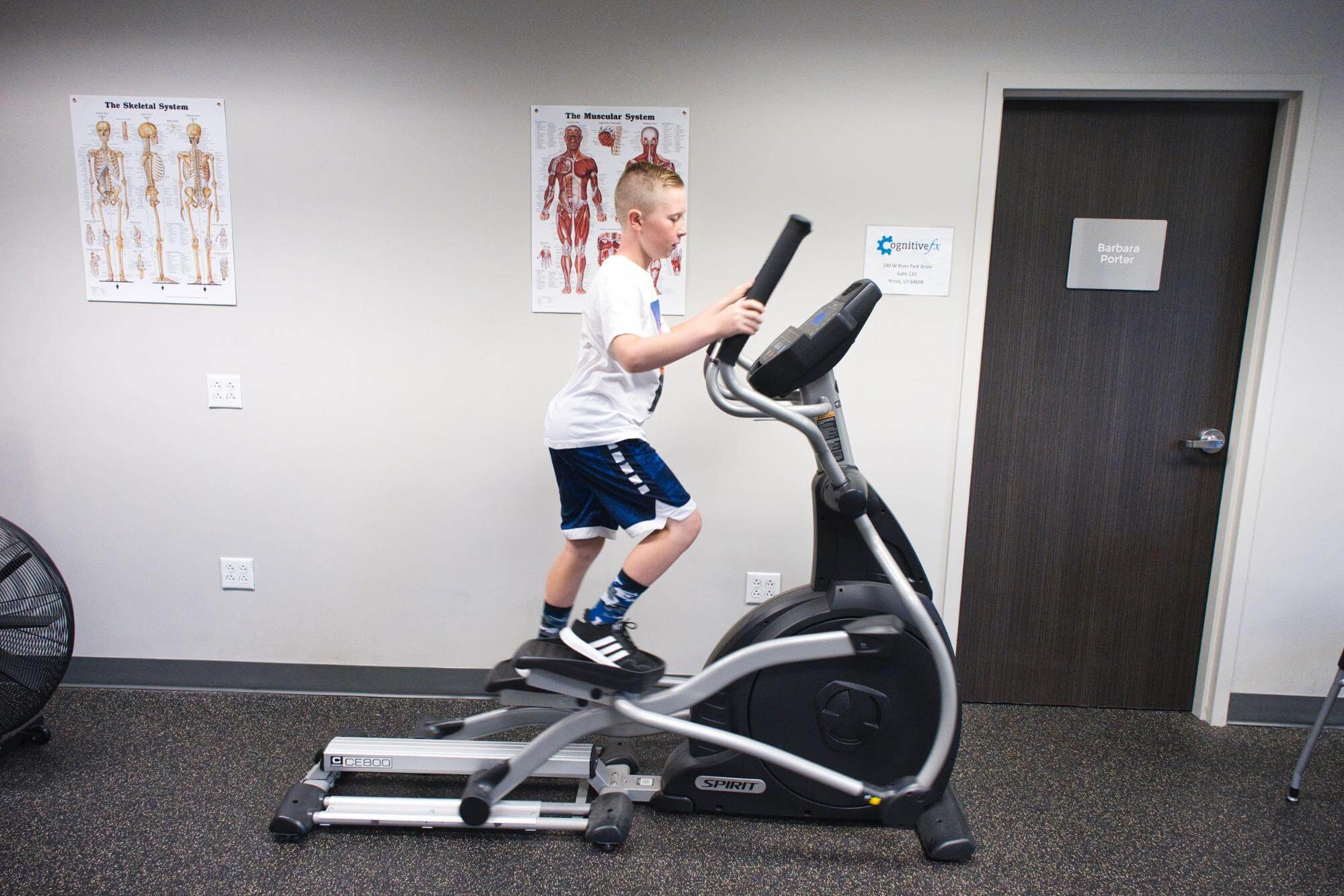
First, you’ll engage in high-intensity intervals of cardio interspersed with several minutes of deep, measured breathing. This step encourages the sympathetic and parasympathetic nervous systems to balance each other better, improves blood flow in the brain, and releases neurochemicals that improve the brain’s ability to respond to therapy. One of those neurochemicals, brain-derived neurotrophic factor (BDNF), improves cognitive flexibility and has been shown to improve therapy outcomes in brain injury patients.
Your therapists can moderate exercise intensity based on your needs and whether you experience post-concussion exercise intolerance.
Activate
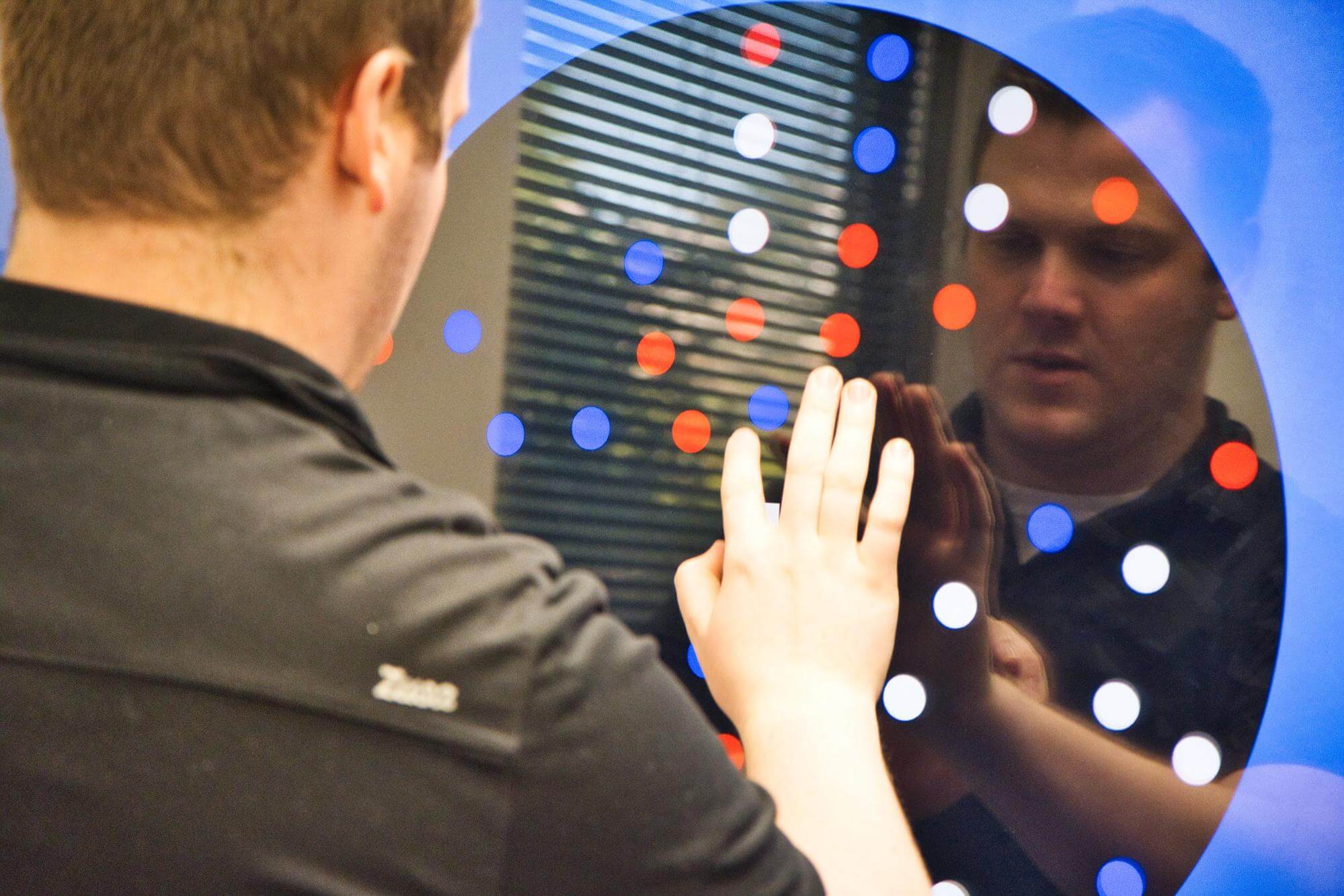
We offer patients many types of therapy to aid in recovery, all of which play a different role in rehabilitating the brain. Those therapies include…
- Neuromuscular and physical therapy
- Sensorimotor therapy
- Cognitive therapy
- Occupational therapy
- Neurointegration therapy
- Vision therapy
- Vestibular therapy
- Psychotherapy
- And more.
Some of these therapies may be a combination of cognitive and physical exercise. For example, during neuromuscular therapy, you might balance on a Bosu board while tossing a football back and forth and naming a city for each letter of the alphabet. Or, during sensorimotor therapy, you might clap and stomp through a four-step repeating pattern along to a metronome while also playing Taboo with the therapist.
Recover
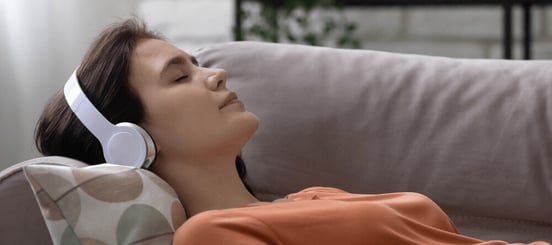
Recovery is interwoven throughout the day. Some examples include:
- Neuromuscular massage. Therapists massage the neck and shoulders to relieve tension, improve circulation, and alleviate headache pain.
- Brainwaves. Patients relax in a dark room with ambient sounds while listening to binaural beats. When you provide the brain with two different but close-together frequencies, it averages those frequencies into one. Pick the right frequencies, and soon your brain waves will resemble those achieved during meditation, helping the brain to rest.
- Mindfulness. Patients learn mindfulness techniques to help their brains rest more effectively.
What Comes Next
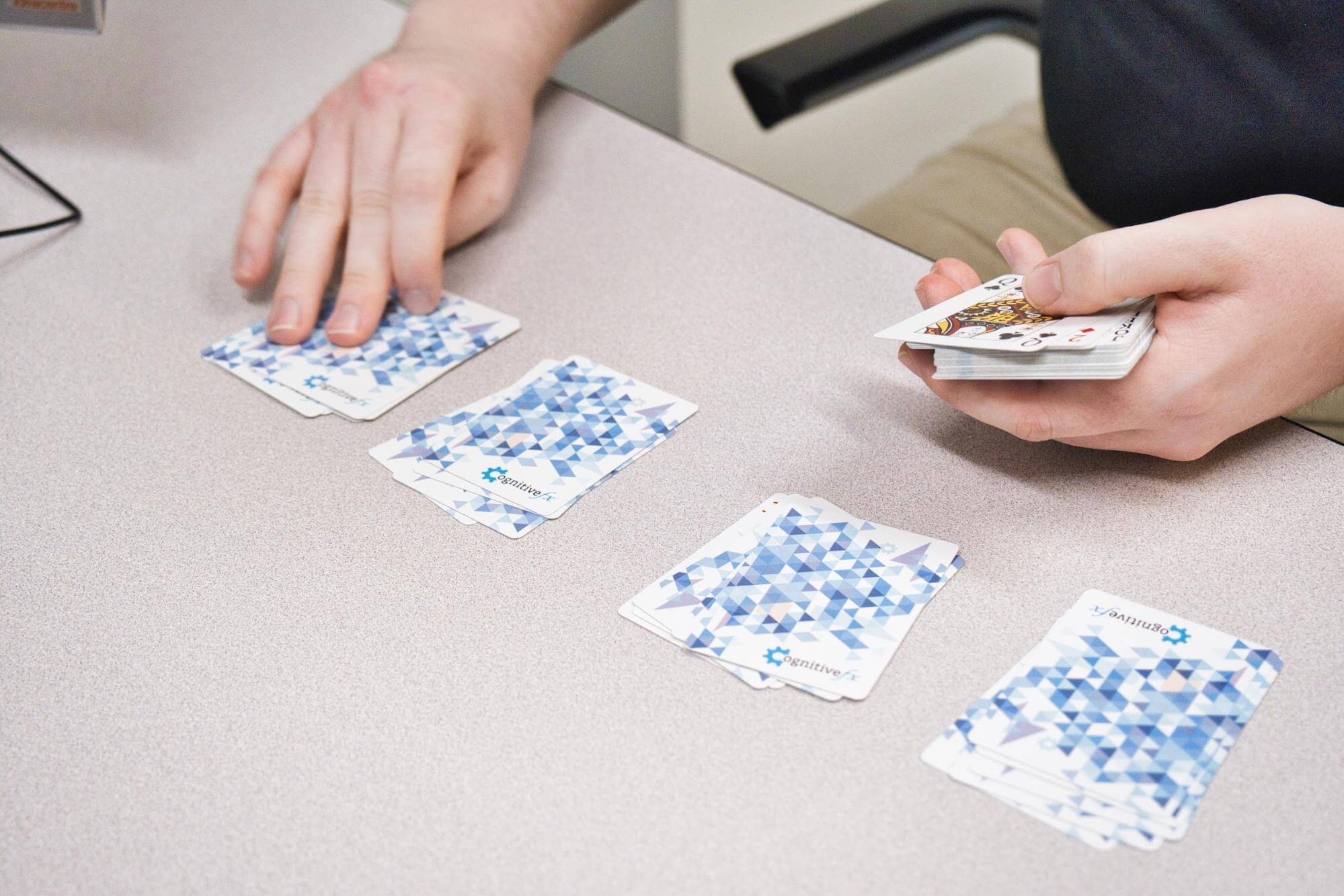
At the end of treatment, we make recommendations regarding at-home exercises and any other medical follow-ups we think you need. For example, if you have blurry vision, you may need to see a vision therapist to continue the progress you’ve made.
Peer-reviewed research shows that 77% of patients treated at Cognitive FX experienced significant improvement in their post-concussion symptoms. Cognitive FX is the only post-concussion treatment clinic with third-party validated outcomes. To see if you are eligible for treatment, schedule a consultation.
About the author
Olivia SeitzOlivia is a content strategist at Grow & Convert. She loves science, cats, swing dancing, and telling stories.
